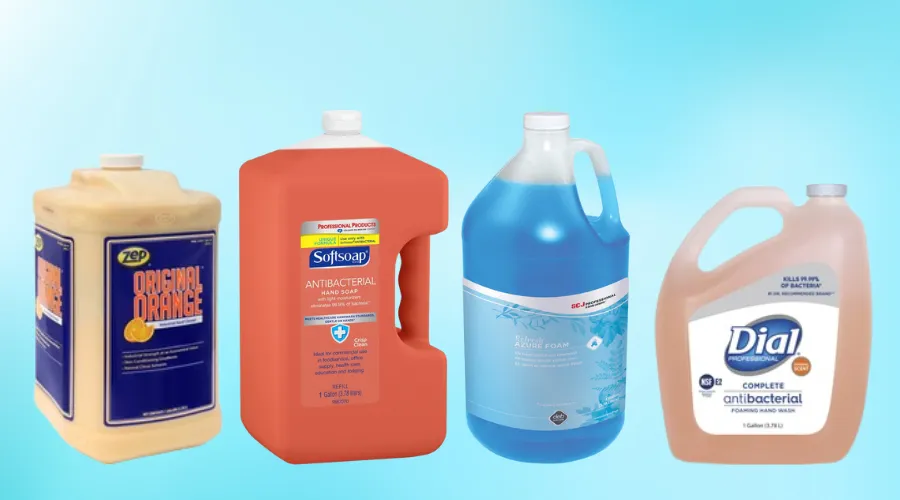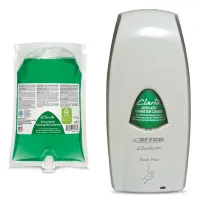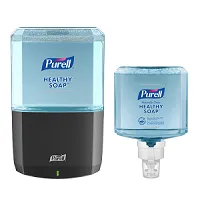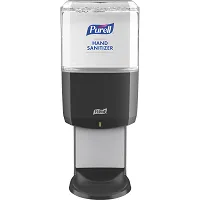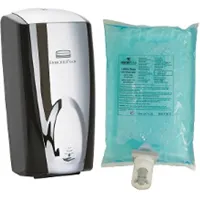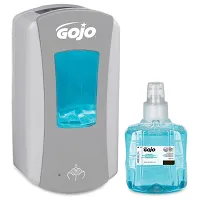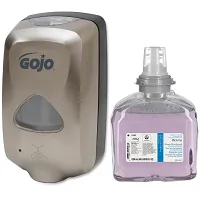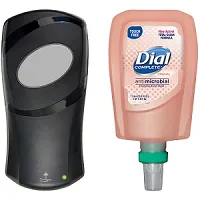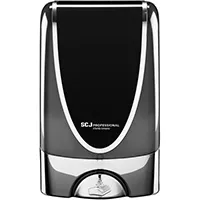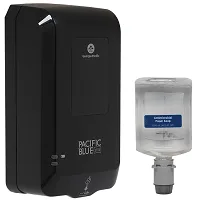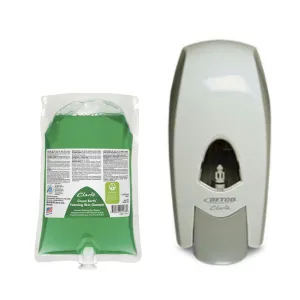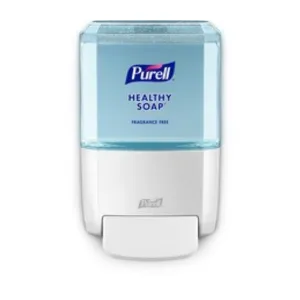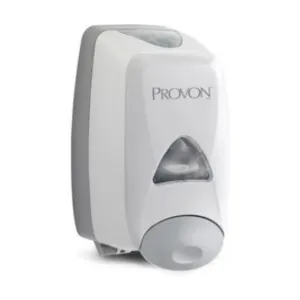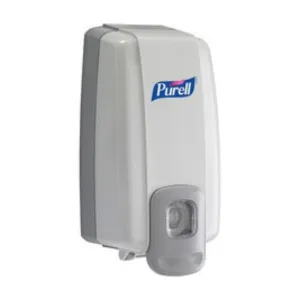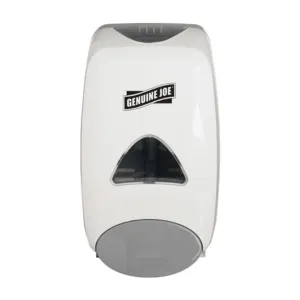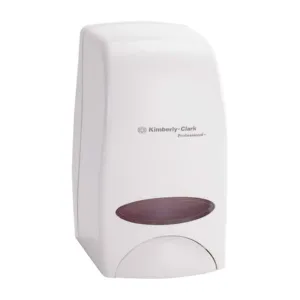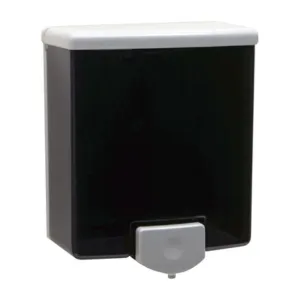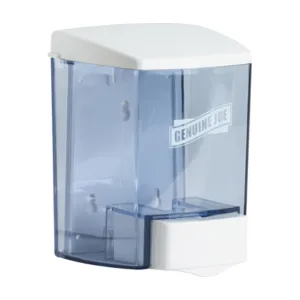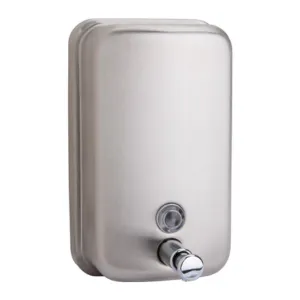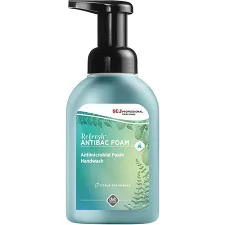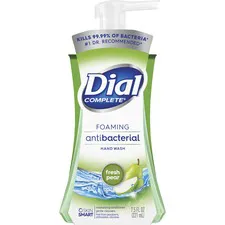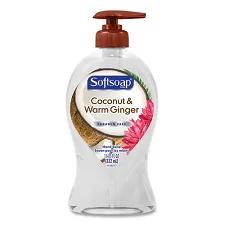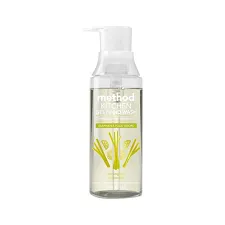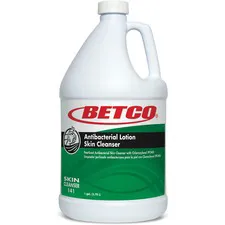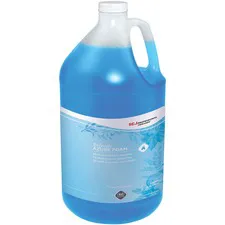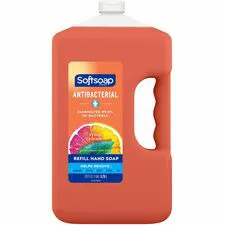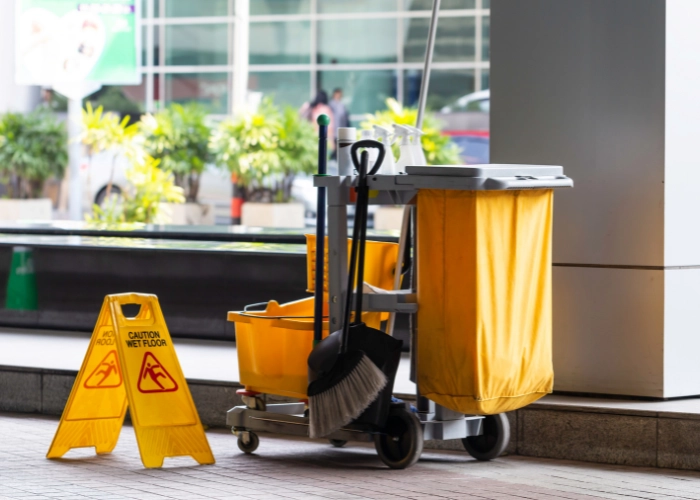One of the most important break room or bathroom accessories is a liquid soap dispenser. Weather you use a wall unit or a standard soap pump bottle, liquid hand soaps work the best to keep your hands clean.
There are many considerations when selecting hand soaps and dispensers. For example:
- Do you want a wall mounted or counter-mounted dispenser?
- How about ease of use like a touch-free dispenser or just a manually operated type?
- Another Question would be, would you prefer lotion dispensers, foam soap dispensers, or pump dispenser bottle?
See our hand soap solutions and guidance below to select the optimal hand soap solution for your office. You can also contact our team to have them review solutions with you.
Soap Dispenser & Refill Options
How to Choose the Right Solution for You
FOAM VS. LOTION SOAP
- More luxurious so people wash hands more
- Adheres to hands better so less dripping
- Dispenses in smaller doses, saving money
- Bulkier feel leads to fewer doses, reducing cost
CARTRIDGE/POUCH VS. BULK SOAP
- Bulk soap dispensers harbor bacteria
- CDC and WHO discourage bulk soap use
- Cartridges are sealed so more sanitary
- Cartridges provide almost no soap waste
- Many people avoid washing with bulk soap
ENVIRONMENTAL CONSIDERATIONS
- Green certified options available
- Dye and perfume-free options available
- Using anti-bacterial soaps may strengthen germs long term
- Foam soap requires 40%-50% less water to be rinsed
TOUCH-FREE VS. MECHANICAL DISPENSER
- Eliminates cross contamination spread of germs and illness
- Preferred by end users, increasing hand washing
- Users use fewer doses, reducing costs
- Requires batteries increasing cost, labor & out-of-service times
- Dispensers and soap may cost more
Hand Washing Information from CDC:
PER THE CDC: WASHING HANDS PREVENTS ILLNESSES AND SPREAD OF INFECTIONS TO OTHERS
Keeping hands clean is one of the most important steps we can take to avoid getting sick and spreading germs to others. Many diseases and conditions are spread by not washing hands with soap and clean, running water.
Hand washing with soap removes germs from hands and this helps prevent infections because:
- People frequently touch their eyes, nose, and mouth without even thinking about it. Germs can easily get into the body through these openings and make us sick.
- The germs from unwashed hands can get on to and into foods and drinks while people prepare or consume them. Germs can multiply in some types of foods or drinks, under certain conditions, and make people sick.
- Germs from unwashed hands can be transferred to other objects, like handrails, tabletops, or toys, and then transferred to another person’s hands.
TEACHING PEOPLE ABOUT HAND WASHING HELPS THEM AND THEIR COMMUNITIES STAY HEALTHY. HAND WASHING EDUCATION IN THE COMMUNITY:
- 1.) Reduces the number of people who get sick with diarrhea by 23-40%
- 2.) Reduces diarrheal illness in people with weakened immune systems by 58%
- 3.) Reduces respiratory illnesses, like colds, in the general population by 16-21%
- 4.) Reduces absenteeism due to gastrointestinal illness in schoolchildren by 29-57%
NOT WASHING HANDS HARMS CHILDREN AROUND THE WORLD
About 1.8 million children under the age of 5 die each year from diarrheal diseases and pneumonia, the top two killers of young children around the world.
- Handwashing with soap could protect 1 out of every 3 young children who get sick with diarrhea and almost 1 out of 5 young children with respiratory infections like pneumonia.
- Although most people around the world clean their hands with water, very few use soap to wash their hands. Washing hands with soap removes germs much more effectively.
- Handwashing education and access to soap in schools can help improve attendance.
- Good handwashing early in life may help improve child development in some settings.
- Estimated global rates of handwashing after using the toilet are only 19%.
HAND WASHING HELPS BATTLE THE RISE IN ANTIBIOTIC RESISTANCE
Preventing sickness reduces the amount of antibiotics people use and the likelihood that antibiotic resistance will develop. Hand washing can prevent about 30% of diarrhea sicknesses and about 20% of respiratory infections. Antibiotics often are prescribed unnecessarily for these health issues.
Reducing the number of these infections by washing hands frequently helps prevent the overuse of antibiotics the single most important factor leading to antibiotic resistance around the world. Hand washing can also prevent people from getting sick with germs that are already resistant to antibiotics.






